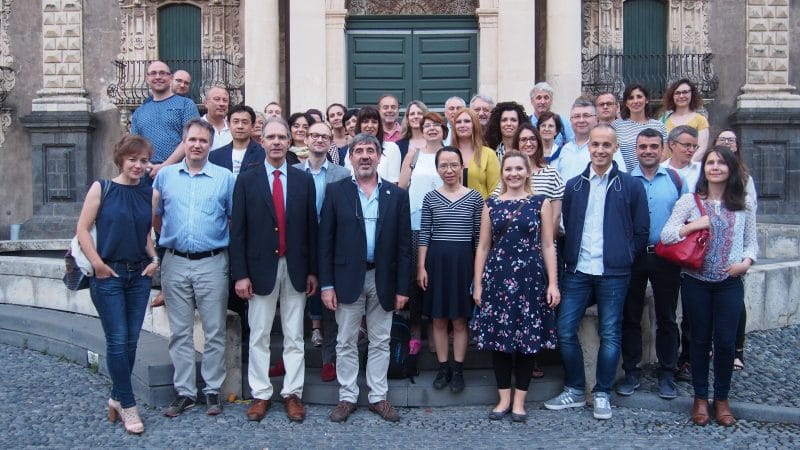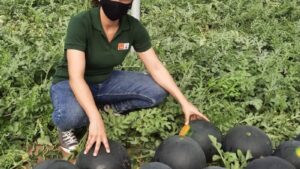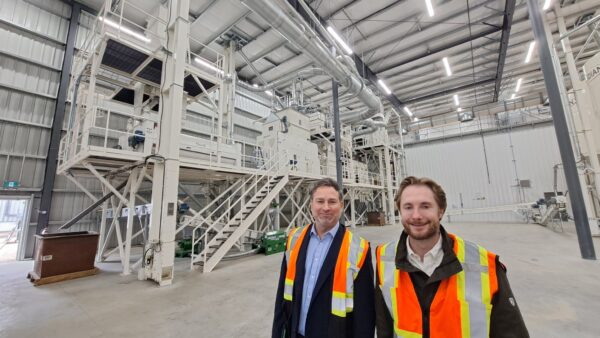With changing climatic conditions and a rapidly growing world population estimated to reach 9 billion by 2050, mankind faces the serious challenge of increasing food production by at least 70%. The vision of the BRESOV project is to tackle this challenge by exploring the genetic diversity of three of the economically most significant vegetable crops (broccoli, snap bean and tomato) and to improve the competitiveness of these three crops in an organic and sustainable environment.
Organic Production In Europe
Organic production is an overall system of farm management and food production that combines best environmental and climate action practices, a high level of biodiversity, the preservation of natural resources and the application of high production standards in line with the demand of a growing number of consumers.
Over the last decade, organic food and farming has continued to grow year after year across Europe. The total organic agricultural area in the EU-28 was 11.9 million hectares in 2016 and that is still expected to grow in the coming years. From 2012 to 2016, the share of organic area in the total agricultural area within the EU rose from 5.6 % to 6.7 %.The vegetable sector represents a minor part of the organic area: 145.639 hectares in 2015 [1].
Demand for organic products in the European Union (EU) outstrips supply. As organic production in the EU lags behind the growth of the organic market, there is a severe risk that the growing demand will still be met by imports and that EU farmers may not benefit.
Taking into account the particularities of the organic production systems, the choice of plant varieties should focus on agronomic performance, genetic diversity, disease resistance, longevity, and adaptation to diverse local soil and climate conditions.
Currently most of the varieties used in organic farming in Europe are not specifically developed for organic farming systems. While non-organic agriculture has more external means to adapt to the environment to achieve optimal crop growth, organic plant production systems need plant reproductive material which is able to adapt to disease resistance, diverse local soil and climate conditions and to the specific cultivation practices of organic agriculture. Therefore, it is of crucial importance to develop organic plant material suitable for organic agriculture.
The BRESOV Project
BRESOV (Breeding for Resilient, Efficient and Sustainable Organic Vegetable production) is a 4-year project which received funding from the European Union’s Horizon 2020 research and innovation programme [2]. It started in May 2018 and involves 22 partners from the EU and beyond. It brings together professional expertise and a stakeholders’ perspective along the whole value chain. Farmers, advisory services, public and private research institutes, breeding companies and food processors are actively involved in the BRESOV project following the concept of a collaborative multi-actor approach.
The overall aim of the project is to improve the competitiveness of three of the most economically important vegetable crop families (Brassicaceae,Fabaceae, Solanaceae) when grown in an organic production system; giving growers confidence that they will attain a sustainable yield. This will be achieved by exploring the genetic diversity of brassicas, beans and tomatoeswith advanced genomic and phenotypic approaches, applying novel markers to identify traits in the selection of breeding material suitable to organic farming. The project will create a pipeline for crop improvement that will accelerate breeding activities and production of high quality and quantity organic seed for the studied crops.
BRESOV will exploit the genetic variation of these three crops for enhanced productivity thanks to new knowledge on genome diversity and function. Germplasm accessions, pre-breeding and breeding lines, and the new elite breeding materials obtained from gene banks and partners’ collections of the three species will be selected and cultivated in organic vegetable farming systems. These cultivars will be selected for efficiency when grown under environmental stresses and for resistance to pests and diseases. In addition, desirable product traits such as taste, visual appearance and post-harvest performance will be considered.
Crop genetic diversity will be broad, as several landraces and crop wild relatives for the pre-breeding and breeding activities will be explored. BRESOV will adopt an innovative approach, where the plant traits related to root growth and its architecture enabling a better interaction with the soil and its microbiome, are sought with the end-users. This approach will enhance resource use efficiency and productivity in organic farming systems by combining benefits of different genetic resources with the best on-farm management practices.
Organic farming needs to exploit a broad array of genetic diversity. Thus, plant breeding for organic farming should focus on the enhancement of genetic diversity to better exploit interactions between plant genotypes and their environment, thus, focusing not only on the main agronomic traits (yield, product quality) but also on their root system and rhizosphere, and abiotic and biotic factors. In the context of climate change it is important to increase the water and nitrogen use efficiency as well as to improve resistance/tolerance to pests and diseases.
The project will contribute significantly towards developing context-specific, climate-resilient organic production systems. Furthermore, they will serve as a model for the enhancement of other crops using innovative organic vegetable production methods and techniques for more resilient and sustainable agrosystems.
Overall Aim
As the consumption of organically grown vegetables has been increasing across Europe, BRESOV will provide alternative solutions for organic producers depending on the currently available plant varieties which are not specific to organic farming systems.
The project’s overall aim is to meet the needs of organic producers, by fostering research to develop varieties suitable for organic production, considering the specific needs and objectives of organic agriculture such as enhanced genetic diversity, disease resistance or tolerance and adaptation to diverse local soil and climate conditions.
Where on the web: BRESOV website: https://bresov.eu; Twitter:@BRESOV_EU; Facebook: BresovEU
[1] Source: https://ec.europa.eu/agriculture/organic/sites/orgfarming/files/docs/pages/014_en.pdf
[2] This project has received funding from the European Union’s Horizon 2020 research and innovation programme under grant agreement N° 774244.












